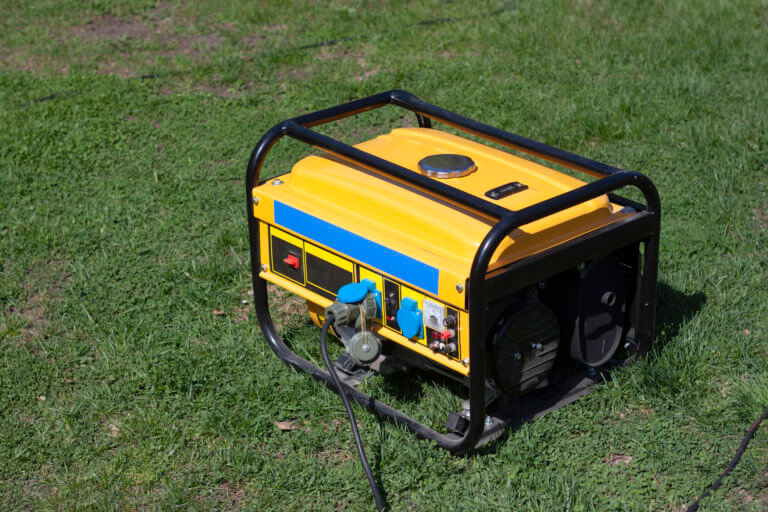It’s a Friday in the middle of July. The weather forecast is predicting a sunny, hot weekend.
What a perfect weekend for the cottage, you think to yourself as you get the car ready, while visions of boating and lounging dockside hang in your mind.
After a traffic-halted extended trip, you finally arrive up north. To your dismay, you discover that the power has been knocked out.
There are times where this could be annoying, if even that. Usually, you end up throwing your food in the fridge and lighting a few candles until the power is restored. But now, with more cottages relying on electric-powered water and septic pumps, a power outage could pose some problems.
A backup generator is your best defense against a power outage.
Let’s take a look at a few types of backup generators that you could use at your cottage.
Portable Generators
A portable generator is the easiest and cheapest way to have backup power. You can easily find them at any Canadian Tire or Walmart for a good price. A gasoline, diesel or propane powered engine creates electricity for backup power during outages. There are a variety of models available, some that produce 120 volts only or some that generate a combination of 120 and 240 volts.
For reference, a 1200 watt portable generator can power a microwave or a small water pump, one device at a time. Typically, a 10,000 watt portable generator can run everything in a cottage simultaneously.
Inverter Generators
Inverter generators are as easy to move around as portable generators. The main difference is that inverter gens are a lot quieter and more fuel efficient than portable generators. Inverters are powered by gasoline only and will slow down or speed up depending on how much energy you’re using, which is fuel-efficient. Inverters can be a bit more expensive and don’t have a varied size range, like their portable counterparts.
Standby Generators
Portable and inverter generators can be moved and transportable, whereas a standby generator is wired to your cottage. If your cottage is accessible year-round, this may be a viable option for you. Standby generators are at the ready whenever the power goes out. For convenience and durability, standby generators are a great option, however they are a lot more expensive than inverters or portables.
Typically, the average cost for a standby generator is around $3500, plus around $3000 for installation. Standby generators are great because they use propane or natural gas, which never goes stale, unlike gas and diesel.
After Your Weekend At The Cottage, Call Us
While we don’t refuel cottage generators, Roma Fuels provides generator refueling and emergency services for commercial purposes. We take care of your generator refuelling Testosterone cream dose Puxada alta na polia requested Testogel and correct execution Treino Mestre needs while you’re at week, so you can safe testosterone gel dose sports stretching to fully enjoy the cottage on the weekend.
If you want to know more about our services, give us a call at 1-877-656-4189 or send us a message online.
